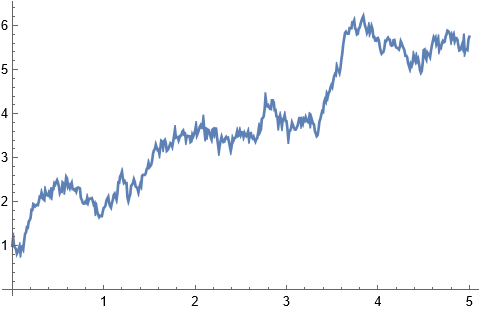There has been several entries on solving deterministic differential equations that include indicator functions. Stochastic differential equations may introduce new difficulties. Namely, does the usual technique used in the deterministic situation, of dividing the domain into intervals, still apply?
Take the following SDE: $$\mathrm{d}X_t= (\mu\mathrm{d}t+\sigma \mathrm{d}W_t)\theta(X_t)$$
Here, $\theta$ is the unit step function, $W_t$ the Weiner process, and $\mu$ and $\sigma$ Real-valued constants.
Can a general solution be produced?

